I’m back from my blogging hiatus and eager to share some books with you! My month is weighted more heavily than usual toward Middle Grade fiction. We have some adult fiction, too, and some eclectic nonfiction. Per usual, my impressions were varied. Enjoy the reviews!
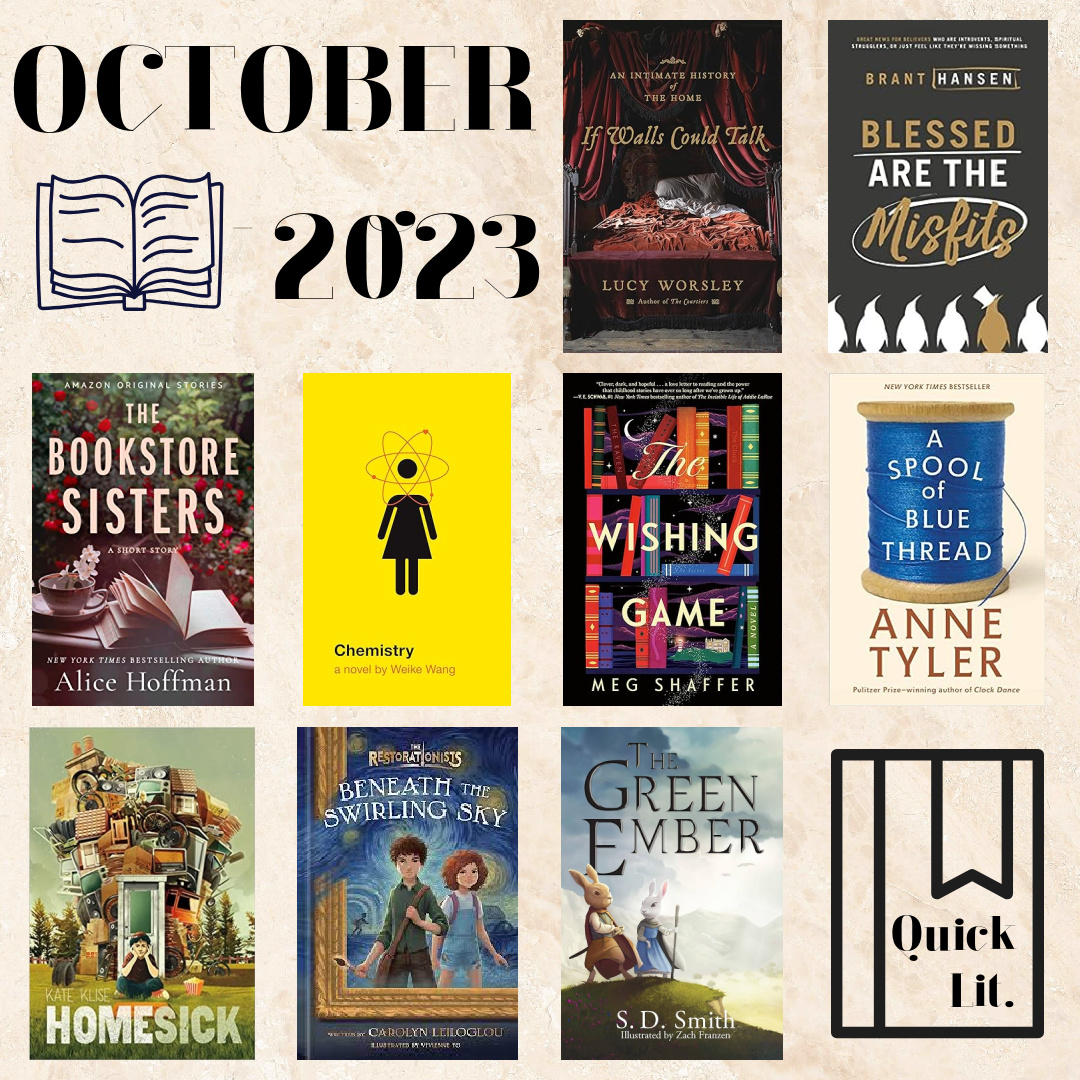
FICTION
The Bookstore Sisters, by Alice Hoffman: Isabel has spent a lifetime trying to put her past behind her: the early losses, the broken relationship with her sister, the love she let get away, the quaint family bookstore that was at the heart of her island home, the books that were once her refuge—everything has been all but forgotten. But when Isabel, now living in New York City and recovering from a bitter divorce, receives a mysterious letter from her childhood home, she returns to the island where she discovers that just because she’s forgotten this world doesn’t mean it ceased to exist. This short ode to books and sisterhood is a story of second chances and new beginnings.
I picked this up on an Amazon deal and thought it might be a nice introduction to an established but new-to-me author. And I loved it! It’s a very fast read, and I could easily have inhaled a full novel with these sweet characters and alluring setting. Still, I’m impressed with Hoffman’s ability to pack an enormous amount of story and heart into this tiny package.
I highly recommend this read for those looking for a quick reading reset that will bring a smile to your face.
My Rating: 4.25 Stars // Book Format: Kindle
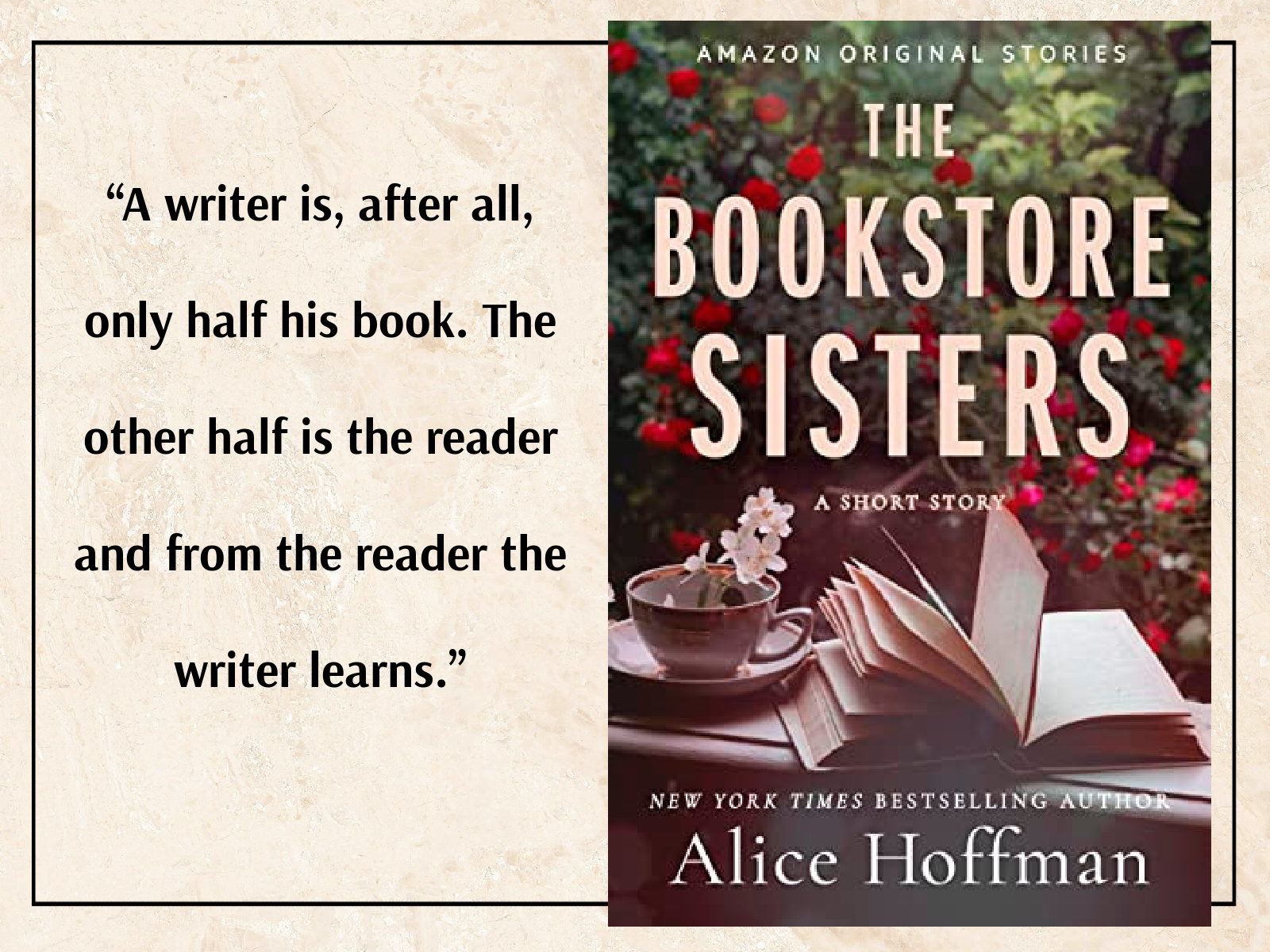
Homesick, by Kate Klise: Twelve-year-old Benny has never known a life outside of his tiny Missouri town of Dennis Acres. (Fun fact: this is a real neighborhood outside of Joplin, Missouri, where my grandparents were living when this book takes place!) Benny enjoys school and has a warm relationship with his teacher, and he’s friends with nearly all of the town’s fifty residents. But life at home is tough. When Benny’s mom leaves, he is left with his dad who refuses to throw anything away. His mom says she will only return when Benny’s dad starts to confront his hoarding addiction, which the whole town knows that will happen “when pigs fly.”
An opportunity for some change arises when the town’s Kindergarten teacher “misrepresents” the crumbling Dennis Acres in America’s Most Charming Town contest, and pressure mounts for the citizens (and especially Benny’s dad) to clean up their act. But nobody in Dennis Acres is prepared for the real changes that are ahead.
This novel is NOT what I expected having read a few of Klise’s other books. I actually picked it up for Charleston, who just finished her 43 Old Cemetery Road series (and LOVED it), but after previewing this I realized it was too mature for him. I got sucked into the story, though, and did not stop reading until the shocking final page. Set in 1983 and told from Benny’s perspective, with transcripts from the local radio show sprinkled throughout, this reminded me quite a lot of Dear Mr. Henshaw. Like that iconic book, this one grapples with challenging themes of poverty, divorce, and seemingly unattainable dreams.
I would not recommend this to younger readers (it’s too mature for kids under ten and likely would not appeal to kids under middle school age). But as an adult reader I fell hard for this story. Benny is a remarkable yet believable young protagonist, and my mama’s heart broke for him in his difficult circumstances. The book offers a helpful glimpse into what life may look like for kids of a mentally ill parent. Coincidently, is the FIFTH book I’ve read this year with a theme of hoarding (what on earth?!) and I appreciated reading about it from the perspective of a child.
Though the subject matter is weighty, the story contains plenty of levity. Benny’s neighbors are quirky and his dry insight into their behavior literally made me laugh out loud. There are also some hilarious 80s references and funny foreshadowing of technological advancements to come (like the invention of some strange thing called the “world wide nougat” with “yarn” connecting people around the world).
The book does not sugarcoat the tragedies (and there are many) but ends on an uplifting note (after some huge story points I didn’t see coming). It would make a great book to discuss with your (older) middle grade reader.
My Rating: 4.5 Stars (Rounded to 5 Stars on Goodreads) // Book Format: Print
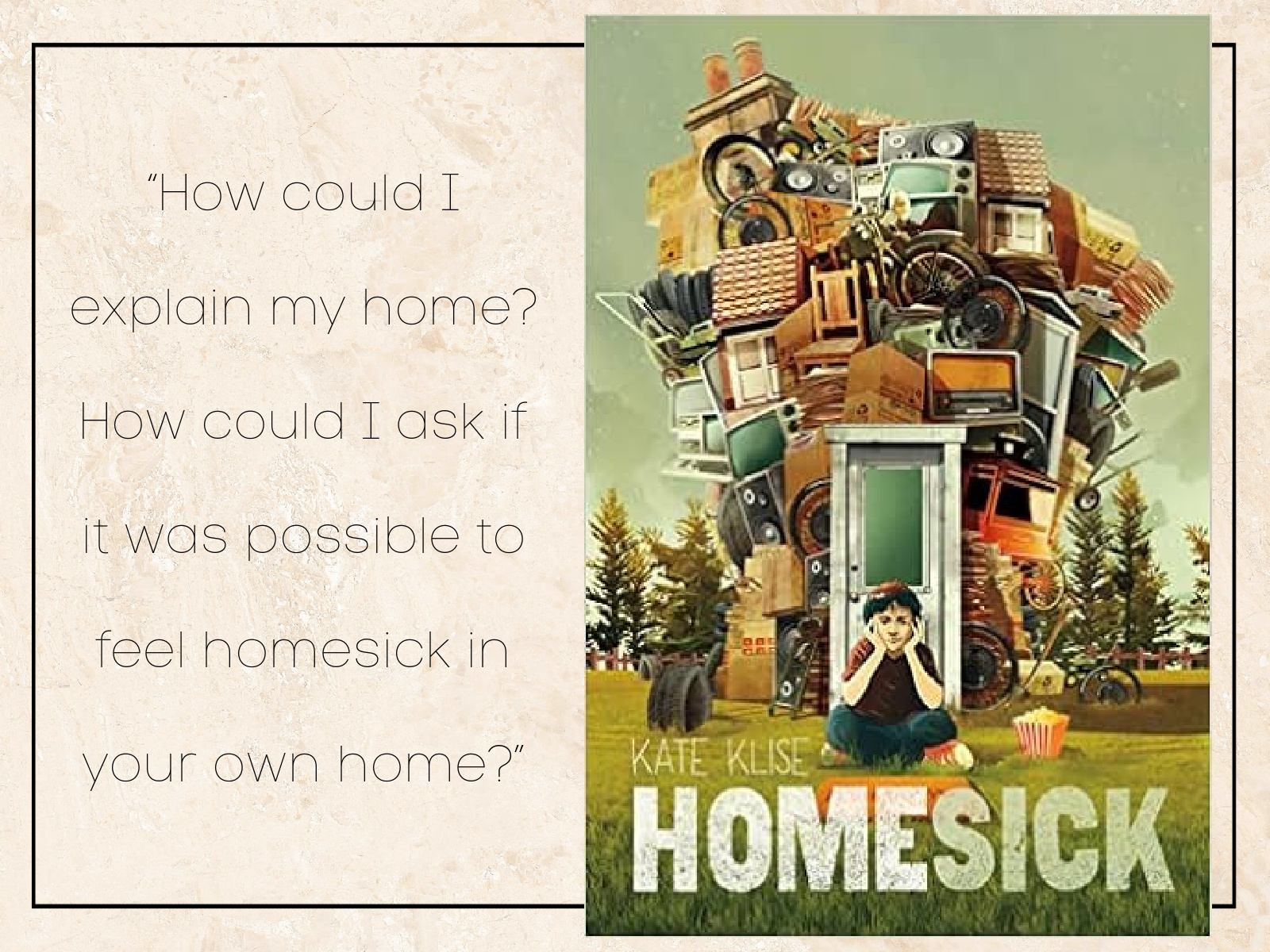
Beneath the Swirling Sky, by Carolyn Leiloglou: Vincent wishes he was spending spring break hanging out with his friends or vacationing some place fun. Instead, he’s staying with his uncle in the Texas countryside. Vincent has a feeling he knows his mom’s reasoning for dropping him and his sister, Lili, off with their uncle for the week: Uncle Leo is an art restorer, and Vincent’s mom wants her son to reconnect with his earlier love of art. Spring break takes a shocking turn when Lilli falls into a famous painting. Vincent goes in after her and discovers that his family is part of a secret society with the power to travel through paintings. With this unique ability comes a high calling: to protect the art from evil forces. Enveloped within this new world, Vincent and his cousin Georgia go in search of Lili, learning about their family, their gifts, and all that is stake throughout their quest.
I read a lot of children’s lit with the kids, but I picked this one up just for me after hearing about it on the Currently Reading podcast. And now, having read it for myself, I can’t wait to pass it on to Charleston! (I read this on audio but purchased the book in print for him to read.) Though the book was faster paced than I would have liked (I would have preferred less action and more character development), I enjoyed this sweet story for its intriguing premise, excellent interdisciplinary teaching potential, and strong themes of loyalty, courage, identity, purpose, and a classic good vs evil storyline. The subject of art and its potential for both good and bad—and the ways it has been historically utilized to impart truth, preserve culture and story, or evoke sympathies—is seen throughout the book, but fits nicely within the story rather than overpowering it.
The book is from a Christian publisher and there are some subtle Christian references, but these too are not overpowering; this is simply a quality story with positive messaging that can be appreciated by readers of all faiths and backgrounds. This would make a great read-aloud or solo read for fans of the Magic Treehouse or Imagination Station books.
My Rating: 4 Stars // Book Format: Audiobook
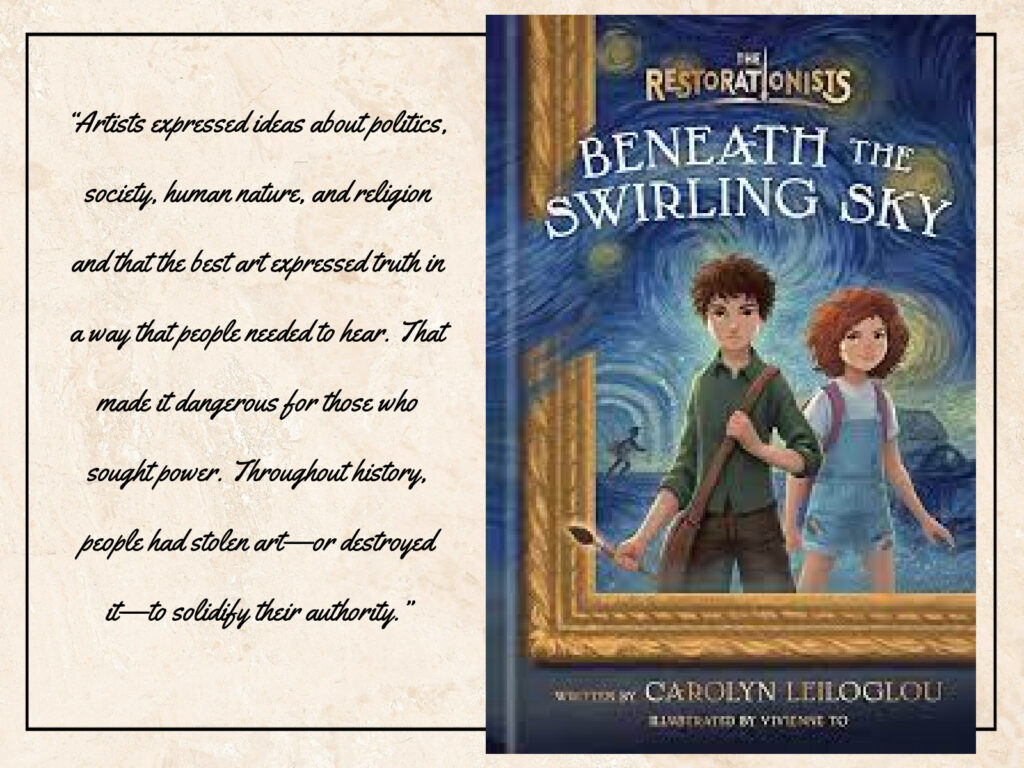
The Wishing Game, by Meg Shaffer: Lucy Hart’s childhood was one of loneliness and neglect. She found solace in books, particularly the Clock Island series by Jack Masterson, a reclusive bestselling author who lives on an imaginatively designed island modeled after the eponymous island in his books. Now a young adult, Lucy has passed her love of the Clock Island books on to Christopher, a seven-year-old orphan who attends the school where Lucy works as a teacher’s aide. Lucy wants nothing more than to adopt Christopher, but both she and Christopher know that will take a miracle.
The miracle seems to have arrived when Lucy is invited to participate in a contest hosted by Jack Masterson on Clock Island. Lucy is among four lucky contestants invited to compete for the single copy of Jack’s latest book. All of Lucy’s biggest wishes seem to be coming true, but she must first confront her biggest fears and deepest insecurities on the quest to win the book and step into the life she’s always longed for.
This book that has been described as “Willy Wonka for adults” has one of the best premises I’ve read in years. The novel combines a fun (but friendly) competition with a whimsical island setting, a series of riddles to solve, a mystery/romance/found family genre mashup, themes of forgiveness and redemption and hope, all around a theme of children’s books. What’s not to love? Unfortunately, quite a bit.
Though bursting with potential, this book would have benefitted from some heavy editing. The amateurish prose reads YA, which—combined with the childlike premise and very adult themes—made for a confusing reading experience. There are a quite a few plot holes, confusing timeline jumps, inconsistent pacing, unrealized characters, and areas where the story simply does not make much sense.
More disappointing, though, are the many problematic relational dynamics. First up is the relationship between Christopher and Lucy: I found their bond odd and more than a little inappropriate and codependent, not to mention Lucy’s absurd belief (depicted as realistic in the book) that she could adopt Christopher if only she had the money, despite the disaster that is her home life. Later, Lucy is reacquainted with an old love interest—someone she had a crush on as a young teen, when he was an adult; though they are now both of age, their relationship was tainted by the inappropriateness of their initial meeting. Most uncomfortable of all is Jack’s relationship with the adult contestants of his game. There is nothing officially “wrong” with Jack’s meddling in the lives of these contestants that he refers to as “his kids”, but the nature of their dynamic did not sit well with me. I may have been able to overlook this in a book with a more clearly defined intended audience, but the blurred lines created by the amateurish prose and inclusion of portions of children’s book added an air of impropriety to the darker nature of the characters and their possible motives.
With that said, I did enjoy spending time at Clock Island and would love to see this series brought to life. I would also have loved to see some full illustrations sprinkled throughout the novel, as their descriptions sound incredible and the cover is magnificent. I can understand the draw of this novel for many readers, especially those of us who fell in love with reading at an early age and longed to be swept into the stories we loved. But I’m surprised more readers have not been bothered by the tragic themes that are whitewashed in feel-good wishes and whimsical literary worlds.
My Rating: 3 Stars // Book Format: Print
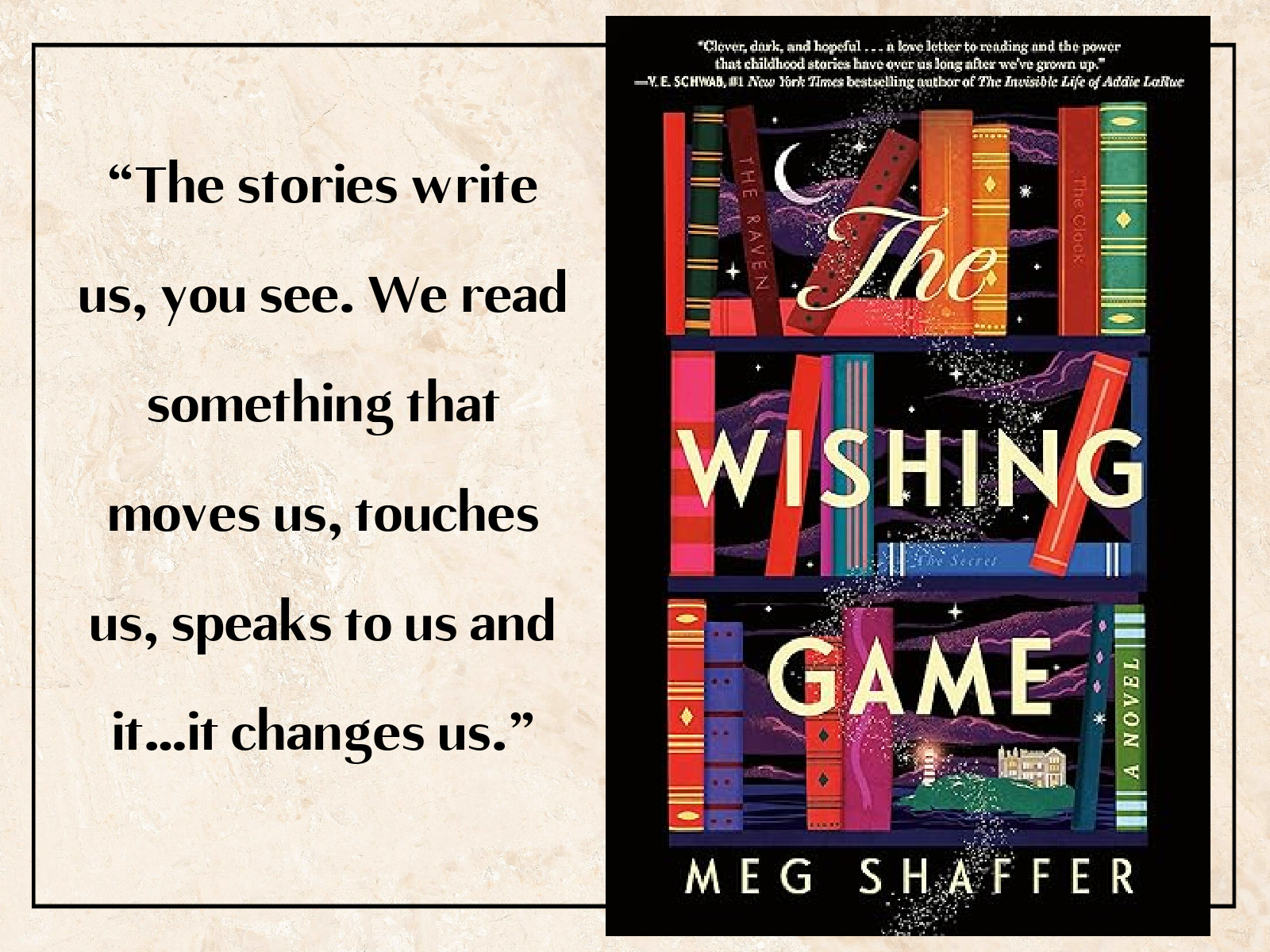
The Green Ember, by S.D. Smith: Heather and Picket are ordinary young rabbits who have lived a comfortable life in the countryside. Throughout their childhood, they’ve listened with rapt attention to their father’s nightly stories of great rabbit heroes of the past. Those adventures are brought into the present when enemies come to terrorize their idyllic home.
Rescued by an unknown relative, Picket and Heather flee their home for safer lands. They encounter new realms and discover hidden family secrets that undermine their own credibility and bring their character and their loyalties into question. Still reeling from the loss of their parents, Heather and Picket must adjust to this new life where they are unsure of who can be trusted.
This series has been described as “Rabbits with swords” and that pretty much sums it up: this is an epic adventure fantasy with rabbits as our heroes. And if that sounds a little strange, it’s because it is, particularly for those who are not particularly fans of high fantasy or adventure tales (raises hand…). I could appreciate the Biblical symbolism and strong themes of devotion, identity, purpose, and being part of something greater than oneself. The allusions to a life lived in limbo—paralleling our own earthly time awaiting Heaven—were lovely and gave our family a lot to discuss, as did the complex (if somewhat tumultuous) emotional lives of our protagonists.
Though this book has much to recommend it, it wasn’t a favorite for our family. The book is heavy on action and light on definitive story. I can see the epic the author is beginning to crate with this first installment in the series, but we did not have the patience for the drawn-out saga. I was also disappointed with the mediocre writing. We had great hopes for this book that is beloved among many in the homeschooling community, and though we are happy to have seen what the fuss is all about, we do not feel the need to continue with the series.
My Rating: 3 Stars // Charleston’s Rating: 3.75 Stars // Book Format: Print
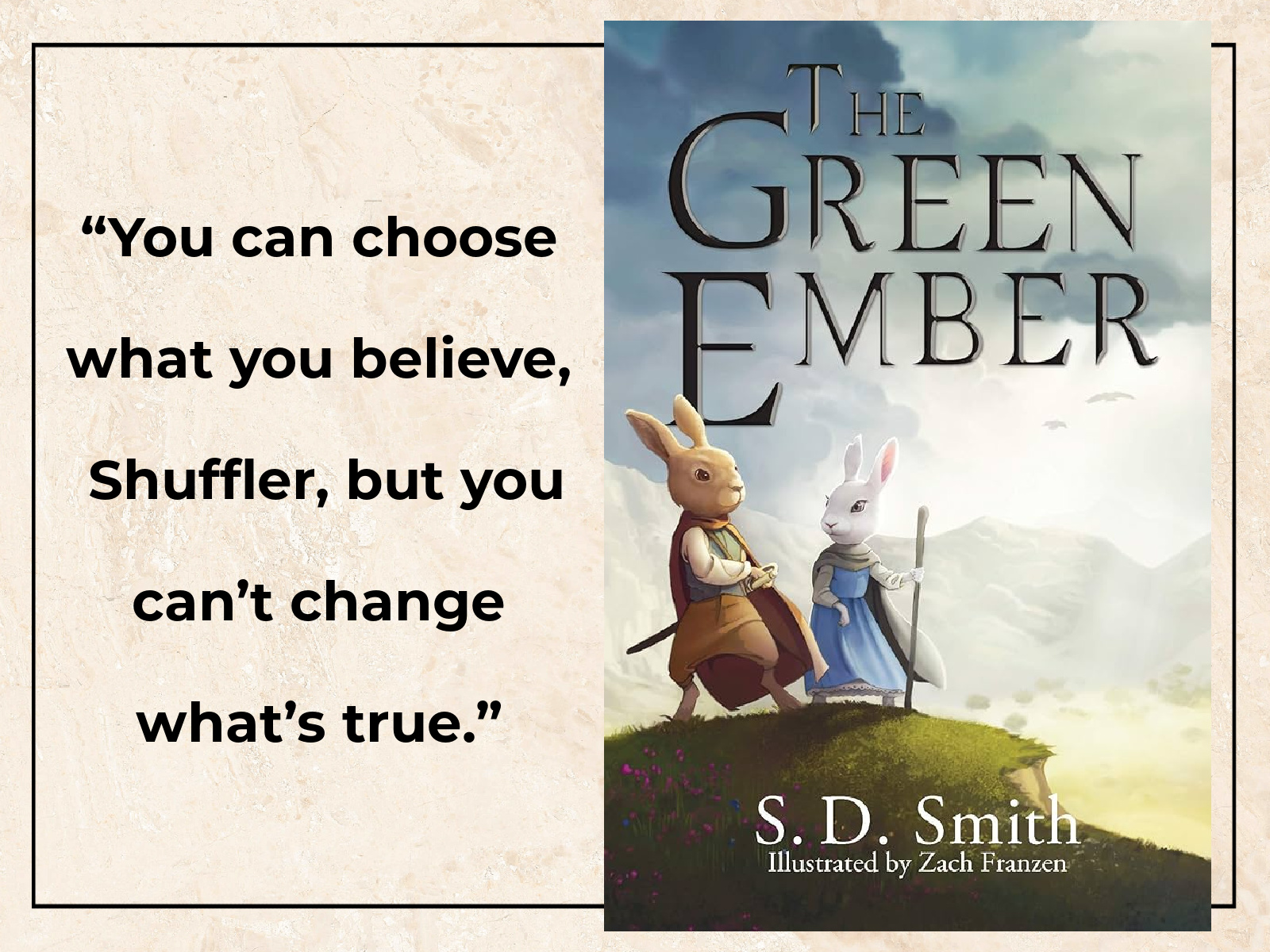
A Spool of Blue Thread, by Anne Tyler: Red and Abby Whitshank are given a shock when their young adult son calls home with surprising news. Denny has always been the black sheep of the family, never fitting in with his high-achieving older sisters Amanda and Jeannie, and certainly no comparison to his brother, Stem, who has always been the family favorite and the son who follows in his father’s footsteps as a family man committed to the family’s carpentry business. Despite Denny’s wayward ways, the Whitshanks have been a family admired by outsiders (or at least that’s how they assume they are perceived!), but from the inside out they are far from perfect. Within the walls of their generational home, there has been resentment and secrets, jealousies and hidden agendas, extending back through three generations of Whitshanks.
The story unwinds—not unlike the titular spool of thread—through the family history, back into Red and Abby’s courtship in the 1950s and to Red’s parents (Linnie and Junior) who met under fraught circumstances in the 1920s and forged an unconventional path towards homeownership in their enviable Baltimore neighborhood. At the core of the family saga is the steadfast and much-admired family home, itself a character within the Whitshank legacy, and as we spiral back towards the home’s origin we begin to understand and sympathize with these three generations whose insecurities, hardships, and striving have woven them together while also forcing them apart.
This is my third Anne Tyler novel in as many months and I am happy to have found an author whose books I connect with (and who has a deep backlist for me to explore). Tyler’s writing style, though understated, is deceptively absorbing as she pulls us towards her dynamic, thoughtfully drawn characters that seem so real I am positive I will run into them if I were ever to visit Baltimore. The themes within this book are deep and challenging: loneliness, petty vindictiveness, and misunderstanding are everywhere; yet I found the novel oddly comforting as I settled into a story that was not in any way idealistic, but highly relatable and oh-so-real. I appreciate this family who loves each other, even if they don’t quite know it.
This is a thinking book, and a feeling book; though it appears to be unpopular among other readers (who accurately cite a lack of action for their dislike) I found the slower pace to be part of the appeal as it allowed me to settle in and gain a true view of the individuals that are the novel’s selling point. The metaphors and callbacks and nuances are endless; each page led me to pause and reflect on what Tyler was saying and (more importantly) what she WASN’T saying but could possibly mean. The book is very literary, yet also assessable in the manner of the best literary fiction.
Anne Tyler continues to astound me with her understanding of humans, families, and how we “do” life. I would have liked a more conclusive ending, as well as more backstory, yet something about the abrupt conclusion and incomplete history fit with this book (and this family) that refused to fit within the confines of solid beginning and ending.
My Rating: 4.5 Stars (Rounded up to 5 Stars on Goodreads) // Book Format: Kindle
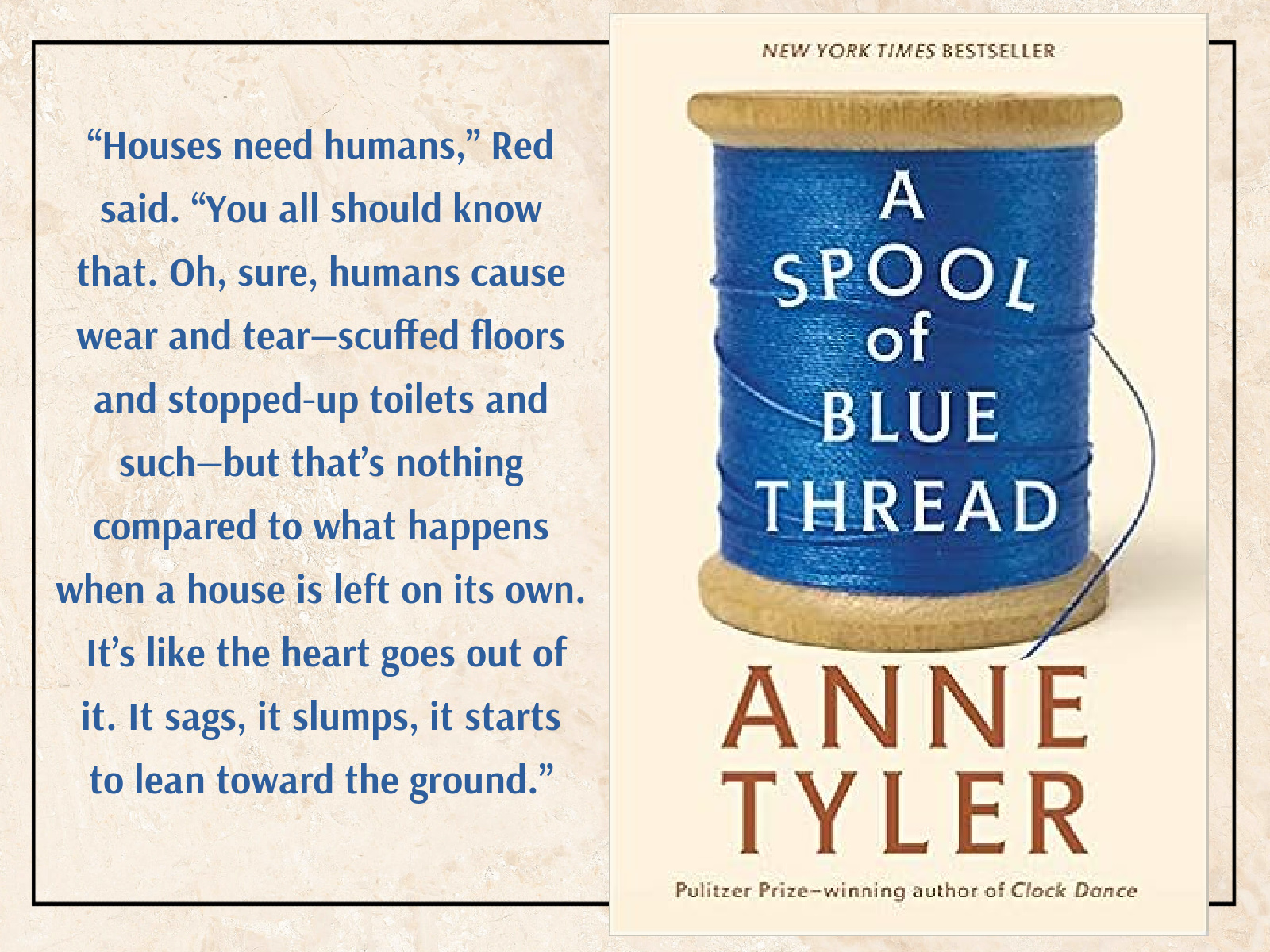
Chemistry, by Weike Wang: The unnamed narrator of this quirky novel is brilliant and successful, with a life many would envy: a doting boyfriend, a loyal best friend, and a budding career in Science as she works to complete her PhD in Chemistry. Yet she is plagued by doubt, unsure of whether or not to accept her boyfriend’s marriage proposal, or if she should stay in the sciences in order to please her Chinese-American parents (who are impossible to please); she’s not even certain of how to relate to her tutoring students or her dog or the appliances in her home.
Told in brief stream-of-consciousness observations that weave through Chemistry factoids, Chinese fable, philosophy, psychological observations, and the narrator’s own looping anecdotes and family history, we get a glimpse into the world of a scientist, a woman raised in a tumultuous home, and the inner workings of a very intelligent individual’s meandering towards “crazy brain.”
Though short, I took my time with this book that is emotionally challenging and deeply “literary”: the story is simple at its surface, not unlike our character herself whose straightforward circumstances mask an an intricately complex inner world. It took me a while to adjust to the writing style (particularly the lack of direct dialogue, the unnamed characters, and a fluidity of time and tense), but I found the protagonist and especially the voice quite compelling and was rooting for her from the very first page. I was fascinated by her ways of seeing the world and admired the growth we see in her over the course of the book.
As the narrator opens up about her past we witness the shocking trauma of her childhood; this was difficult to read, especially since I’ve witnessed similar situations with friends (also in the Asian-American community); this book enhanced my compassion for those whose cultural and family experiences are different from mine in ways I may not understand.
This won’t be for everyone, but I loved it for its dry humor, endearing character, and unique style. I also enjoyed learning little snippets of science as I read.
My Rating: 4.5 Stars (Rounded to 4 Stars on Goodreads) // Book Format: Kindle

NONFICTION
Blessed Are the Misfits: Great News for Believers who are Introverts, Spiritual Strugglers, or Just Feel Like They’re Missing Something, by Brant Hanson: Looking at the modern evangelical church, one might assume that church (and possibly even God) is only for extroverted, emotions-driven who are comfortable riding with the cool crowd. Brant Hansen is here to argue differently. Hansen always felt like a misfit both in AND out of church: he is introverted and struggles connecting with his emotions, and for years he felt like he was missing something spiritually. His Asperger’s made him an outsider, yet he longed to connect with God and wondered if it was even possible for him. Hansen wrote this book as a blessing to his fellow misfits with a hope that “its message is ultimately freeing, and even if you emerge from reading it thinking, Wow, that Brant is a very odd person, you’ll also be aware of just how astonishingly good God really is.”
To be honest, I did come away from this thinking Brant was odd, but not more odd than anyone else! I don’t relate to the misfit feeling in all the ways Brant describes; like him, I’m an introvert, but I’ve never struggled with the emotionality of church and I’ve never experienced the level of church wounding he has seen. I’ve never seriously questioned my faith, or felt skeptical towards God, or felt unseen in the church. But I COULD relate to a lot of Hansons’ story, such as his history of depression and loneliness and grappling with the meaning of what it looks like to be faithful.
The book follows a beatitude-style format, with chapters like “Blessed are the Unfeeling Faithful” and “Blessed Are Those Who Don’t Have Amazing Spiritual Stories.” Every chapter—even the ones not relevant to my own experience—is honest, insightful, and most of all FUNNY. Hanson’s writing is quirky and hilariously sarcastic. I love his refusal to mince words, his unabashed calling out on hypocrisy, and his general willingness to go against the grain. I can think of dozens of friends and family (including my husband) who will connect with the messaging here, and Hanson’s light, conversational style makes this potentially challenging topic accessible and even enjoyable. Most of all, the book as a whole is God-glorifying and also life-honoring.
My Rating: 4.5 Stars (Rounded to 4 Stars on Goodreads) // Book Format: Audiobook (Hanson, a radio announcer by profession, is an excellent narrator.)
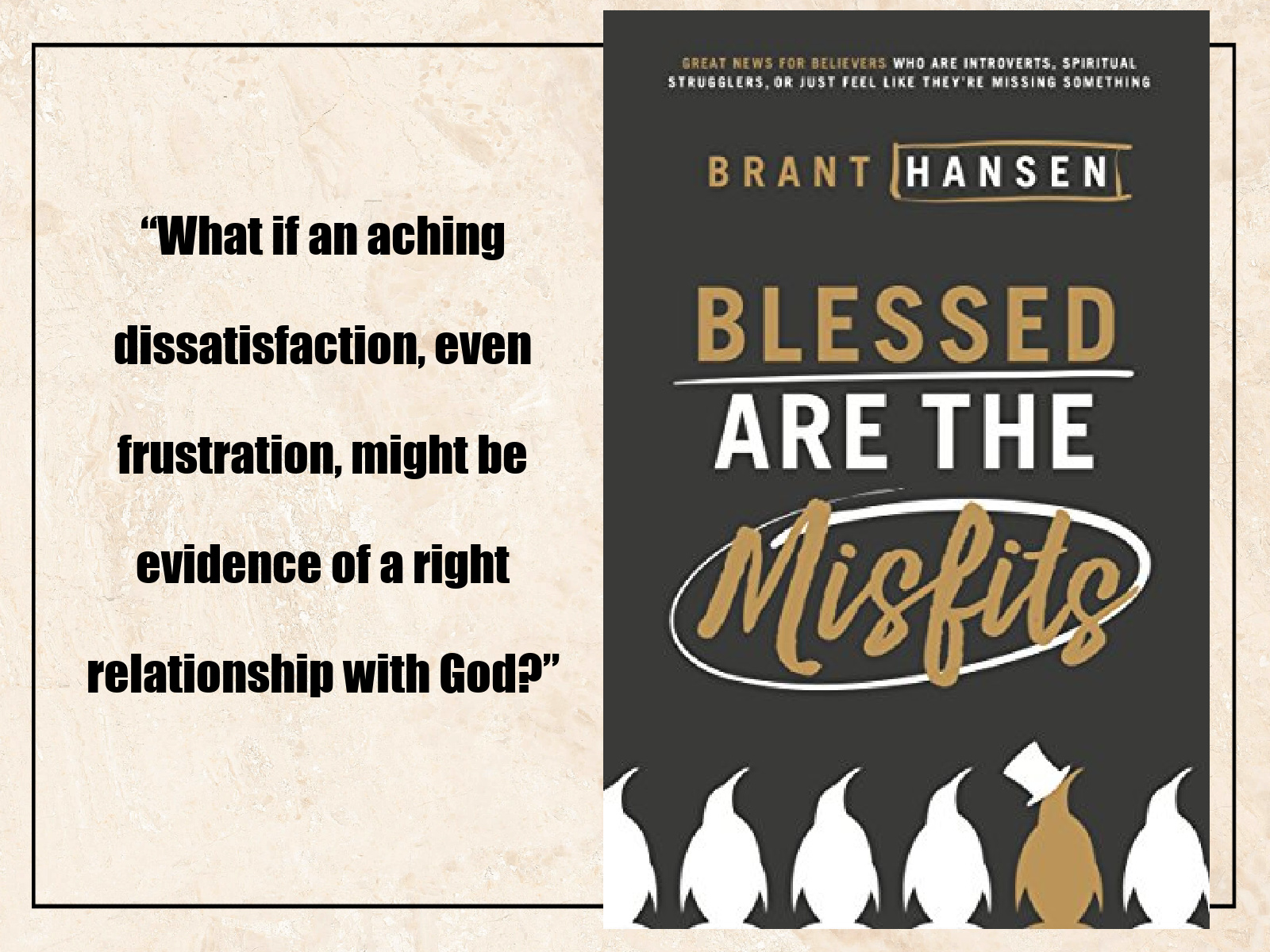
If Walls Could Talk: An Intimate History of the Home, by Lucy Worsley: We (or at least I) tend to take our personal items and spaces for granted; they simply are, and possibly have always been. But what if our objects and homes could share their stories? What would they have to say about us: our values, habits, culture, and routines? In this creative walk through the history of household items, Lucy Worsley gives us an enlightening glimpse into the lives of previous generations in Europe. Walking through various rooms (bedroom, bathroom, kitchen, living room), we are introduced to appliances, tools, and other items from each space, learning their history and how their introduction changed life for their owners. Worsley adds color with tidbits about various expressions that have arisen from the use of certain objects (“sleep tight” refers to the ropes that held a mattress in place and sagged under the sleeper’s weight), stories that have risen up around them (the term “crap” does not refer back to an earlier peddler of the toilet, Mr. Crapper, as the word predated the invention), reasons for certain ways of doing things (such as why bedroom doors open inward) and humorous (to us) misconceptions of people from the past (bathing fell out of favor between the 16th and 18th centuries, due to fears that water spread illness).
This is such a fascinating way to study history and I enjoyed the miscellaneous trivia and reminder of how our spaces have changed over time. I liked seeing how items evolved to accommodate certain needs, and how these innovations often had huge implications for households and society. Many of the timelines surprised me, with some objects much older than I would have expected and some much more recent, and the shifting of sensibilities was not what I would have expected (for instance, past generations were actually much less conservative about many issues such as dress and sexuality). It was also intriguing to think of how little we actually know about much of domestic life, as these are not the types of things generally documented throughout history. Much of homelife is and always has been taken for granted, leading to much guesswork regarding the homes of the past.
This book is long and packed with information. It might have benefitted from some more structure (the information is divided by room but weaves back and forth on the timeline, which I found confusing, at least on audio). I also could have done without some of the more crass information related to sexual activity and bodily functions, though these are part of home life and added some humor and shock to the book.
This is not an academic read—there are few sources cited and much of the content seems more anecdotal than carefully researched or peer reviewed—but as a layperson I found this very entertaining. I was listening to this while also reading (the extensively researched) Generations, and though the content and tone of these books is quite different, they paired well as it was helpful to be thinking about differing home life as I read about shifts in generations across the past century.
My Rating: 4 Stars // Book Format: Audiobook
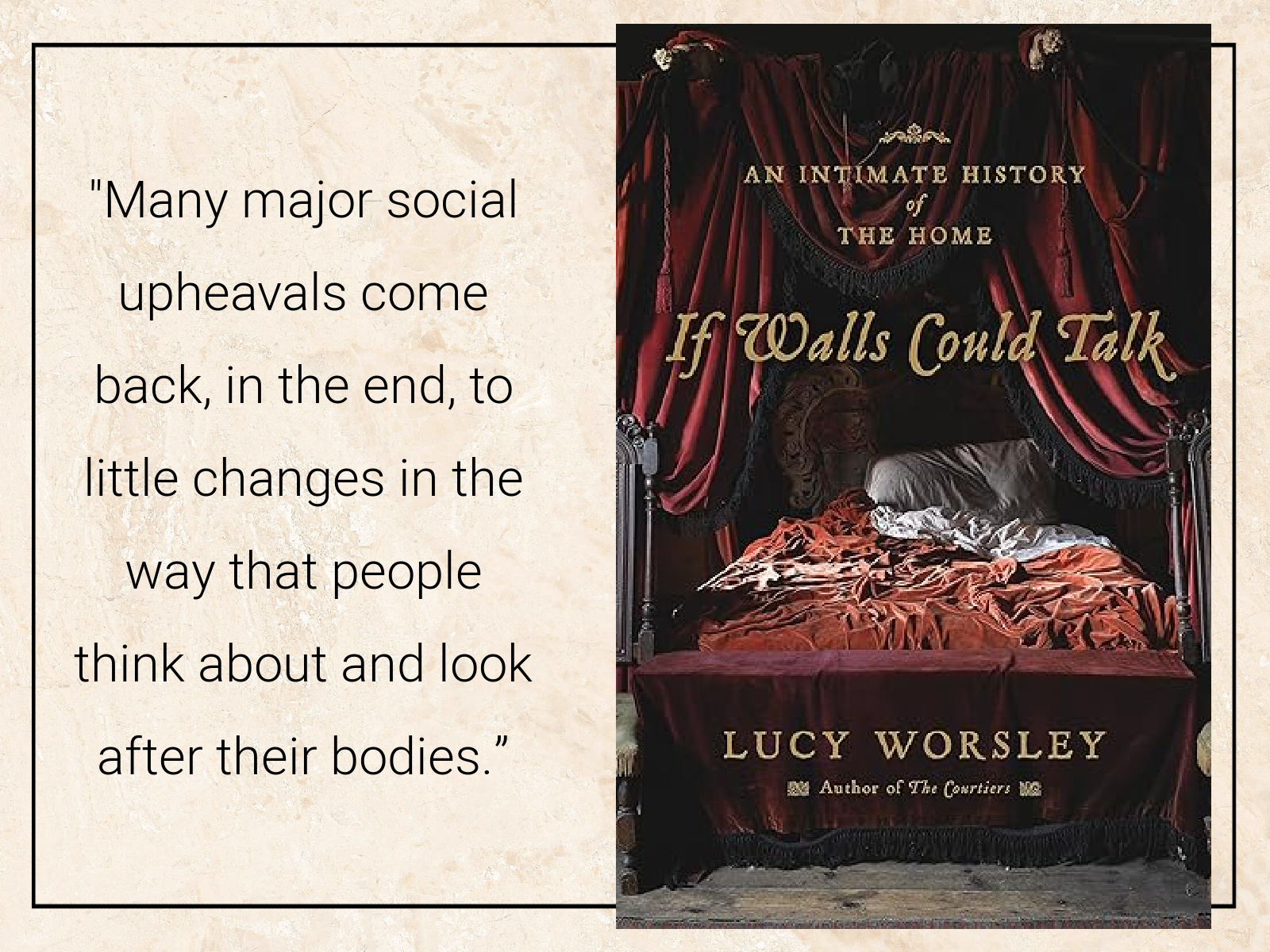
What have you been reading lately? Whether they were bookish wins or misses, I would love to hear about your latest reads!